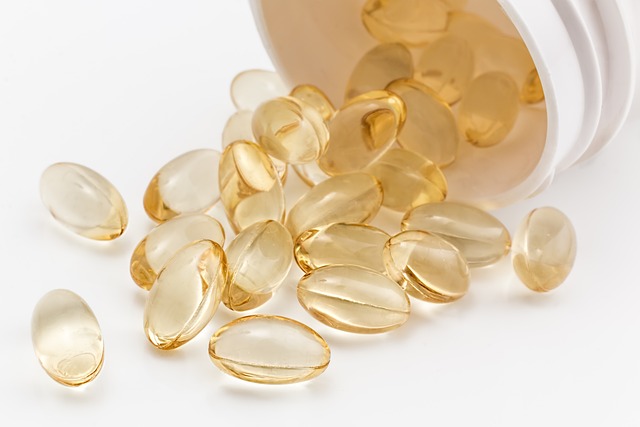Effect of Methylfolate, Pyridoxal-5′-Phosphate, and Methylcobalamin (SolowaysTM) Supplementation on Homocysteine and Low-Density Lipoprotein Cholesterol Levels in Patients with Methylenetetrahydrofolate Reductase, Methionine Synthase, and Methionine Synthase Reductase Polymorphisms: A Randomized Controlled Trial
Abstract
Exploring the link between genetic polymorphisms in folate metabolism genes (MTHFR, MTR, and MTRR) and cardiovascular disease (CVD), this study evaluates the effect of B vitamin supplements (methylfolate, pyridoxal-5′-phosphate, and methylcobalamin) on homocysteine and lipid levels, potentially guiding personalized CVD risk management.
In a randomized, double-blind, placebo-controlled trial, 54 patients aged 40-75 with elevated homocysteine and moderate LDL-C levels were divided based on MTHFR, MTR, and MTRR genetic polymorphisms. Over six months, they received either a combination of methylfolate, P5P, and methylcobalamin, or a placebo. At the 6 months follow-up, the treatment group demonstrated a significant reduction in homocysteine levels by 30.0% (95% CI: -39.7% to -20.3%) and LDL-C by 7.5% (95% CI: -10.3% to -4.7%), compared to the placebo (p < 0.01 for all). In the subgroup analysis, Homozygous Minor Allele Carriers showed a more significant reduction in homocysteine levels (48.3%, 95% CI: -62.3% to -34.3%, p < 0.01) compared to mixed allele carriers (18.6%, 95% CI: -25.6% to -11.6%, p < 0.01), with a notable intergroup difference (29.7%, 95% CI: -50.7% to -8.7%, p < 0.01). LDL-C levels decreased by 11.8% in homozygous carriers (95% CI: -15.8% to -7.8%, p < 0.01) and 4.8% in mixed allele carriers (95% CI: -6.8% to -2.8%, p < 0.01), with a significant between-group difference (7.0%, 95% CI: -13.0% to -1.0%, p < 0.01).
Methylfolate, P5P, and methylcobalamin supplementation tailored to genetic profiles effectively reduced homocysteine and LDL-C levels in patients with specific MTHFR, MTR, and MTRR polymorphisms, particularly with homozygous minor allele polymorphisms.
Keywords: LDL-C; MTHFR; MTR; MTRR polymorphisms; cardiovascular health; homocysteine; methylcobalamin; methylfolate; personalized medicine; pyridoxal-5′-phosphate; triglycerides.
Link: https://pubmed.ncbi.nlm.nih.gov/38892484/
Authors: Evgeny Pokushalov 1 2, Andrey Ponomarenko 1, Sevda Bayramova 1, Claire Garcia 2, Inessa Pak 1, Evgenya Shrainer 1, Marina Ermolaeva 1, Dmitry Kudlay 3, Michael Johnson 2, Richard Miller 2
Source: Pubmed
Date: 2024 May 21
Cited by
Pokushalov E, Ponomarenko A, Smith J, Johnson M, Garcia C, Pak I, Shrainer E, Kudlay D, Bayramova S, Miller R.Nutrients. 2024 Jun 26;16(13):2023. doi: 10.3390/nu16132023.PMID: 38999770 Free PMC article. Clinical Trial.
References
- Mattiuzzi C., Sanchis-Gomar F., Lippi G. Worldwide burden of LDL cholesterol: Implications in cardiovascular disease. Nutr. Metab. Cardiovasc. Dis. 2020;30:241–244. doi: 10.1016/j.numecd.2019.09.008. – DOI – PubMed
- Chrysant S.G., Chrysant G.S. The current status of homocysteine as a risk factor for cardiovascular disease: A mini review. Expert Rev. Cardiovasc. Ther. 2018;16:559–565. doi: 10.1080/14779072.2018.1497974. – DOI – PubMed
- Strain J.J., Dowey L., Ward M., Pentieva K., McNulty H. B-vitamins, homocysteine metabolism and CVD. Proc. Nutr. Soc. 2004;63:597–603. doi: 10.1079/pns2004390. – DOI – PubMed
- Li W.-X., Dai S.-X., Zheng J.-J., Liu J.-Q., Huang J.-F. Homocysteine Metabolism Gene Polymorphisms and the Risk of Folate Deficiency. Nutrients. 2015;7:6670–6687. doi: 10.3390/nu7085303. – DOI – PMC – PubMed
- Liu K., Zhao R., Shen M., Ye J., Li X., Huang Y., Hua L., Wang Z., Li J. Role of genetic mutations in folate-related enzyme genes on Male Infertility. Sci. Rep. 2015;5:15548. doi: 10.1038/srep15548. – DOI – PMC – PubMed
Note: Nutrigenomics Institute is not responsible for the opinions expressed in this article.
Photo by Pixabay






